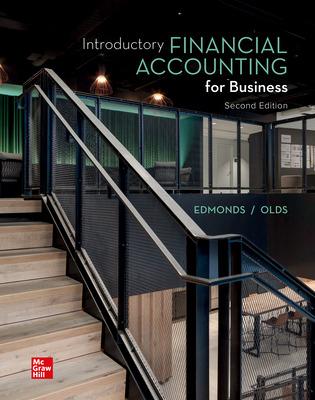



Sales Cutoff, Inventory Valuation and Materiality. Today is March 19, 2021 and you work for the firm of Teper and Lubetsky, Auditors. You are auditing the Sherritt Canada Company for its Sales Cutoff for the fiscal year ending December 31, 2020. Sherritt Canada Company management's draft financial statements include these items on the Balance Sheet: Current Assets: $500,000 Cash $700,000 Accounts Receivable $600,000 Inventory. $1,800,000 TOTAL Current Assets Current Liabilities: $1,000,000 TOTAL Current Liabilities As a result, the Current Ratio = Current Assets divided by Current Liabilities = 1.8. Because of legal arrangements for its loan from the Centennial Bank of Toronto, Sherritt Canada Company's Current Ratio is not permitted to fall below 1.7, or the bank has the legal right to demand immediate repayment. Sherritt Canada Company sells merchandise from its inventory, which consists entirely of large "Excelsior Machines". Sherritt Canada Company follows a Specific Identification inventory valuation policy (it tracks the specific cost of each Excelsior Machine and assigns that specific cost to Cost of Goods Sold upon selling the Excelsior Machine). Sherritt Canada Company's current policy (adopted more than five years ago) has been, upon delivery of an Excelsior Machine to the customer's location, to record an increase in revenue and recognize the associated increase in Account Receivable with this journal entry: Debit: Accounts Receivable Credit: Revenue On the same date, the Inventory asset account is reduced by the specific-cost of the item sold and Cost of Goods Sold is recognized by that same amount with this journal entry: Debit: Cost of Goods Sold Credit: Inventory Sherritt Canada Company had three recorded and recognized (i.e. journalized) sales in its accounting system for the month of December, 2020 and no sales were recorded in January, 2021: December 16: Sold one Excelsior Machine with Identification Number X123 with a specific cost of $100,000; Delivered to customer's location on December 29 as seen on Shipping Document #9001; Selling Price in the amount of $300,000 as seen on Sales Invoice #1001. December 18: Sold one Excelsior Machine with Identification Number Y456 and specific cost of $120,000; Delivered to customer's location on December 28 as seen on Shipping Document #9002; Selling Price in the amount of $320,000 as seen on Sales Invoice #1002. December 20: Sold one Excelsior Machine with Identification Number Z789 and specific cost of $125,000; Delivered to customer's location on January 3 as seen on Shipping Document #9003; Selling Price in the amount of $325,000 as seen on Sales Invoice #1003. REQUIRED: For this question, focus only on Current Assets and the effect on the Current Ratio. [A] As auditor and based on Sales Cutoff testing, do you think there is a misstatement in the company's draft financial statements? If so, which CURRENT ASSET accounts are over-stated or under-stated and by what dollar value? [Note, this part only asks if there is a misstatement, whether or not it is "material"). [B] If you were to recommend an adjustment to the financial statements, what is the adjusted CURRENT RATIO? Show your calculations. [C] If you determined there was a misstatement in part [A], was it a MATERIAL misstatement? Explain WHY or why not. STUDENT RESPONSE BELOW










